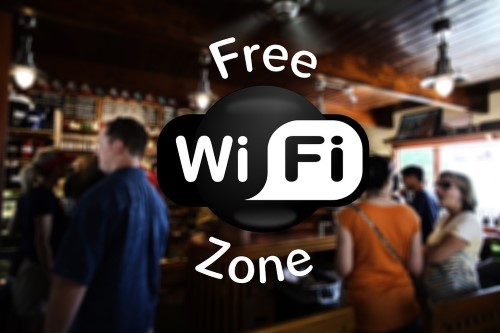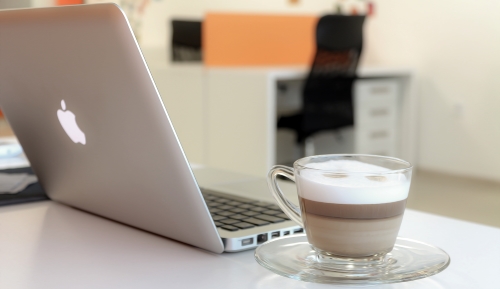Cybercrime is everywhere these days, in 2020 cybercrime cost UK businesses an estimated £21Bn* with an estimated 40% of UK businesses being subjected to to some kind of cybercrime in the previous 12 months. So, how can you minimise the risk to YOUR business?
There’s lots of advice on passwords, I regularly write about them, and other security measures that you can take but did you know that even a trip to your favourite coffee shop could end up being far more expensive than the price you pay for your Triple Grande Decaf Soy Latte Macchiato and blueberry muffin.
 Imagine the scene, you’re between meetings and decide to drop into your favourite coffee shop for a cup of coffee, a cake and to tap into their Wi-Fi to read your emails, refresh your knowledge in time for your next meeting or simply to surf the web.
Imagine the scene, you’re between meetings and decide to drop into your favourite coffee shop for a cup of coffee, a cake and to tap into their Wi-Fi to read your emails, refresh your knowledge in time for your next meeting or simply to surf the web.
Spoof Wi-Fi Hotspot
 When you sit down and try to log-on to the Wi-Fi there’s frequently a selection of hot-spots to choose from. How do you know which is the free service provided by the venue and which is a spoof.
When you sit down and try to log-on to the Wi-Fi there’s frequently a selection of hot-spots to choose from. How do you know which is the free service provided by the venue and which is a spoof.
It’s very easy to set up a Wi-Fi hot-spot using a mobile phone, Mi-Fi type of device or laptop and allow other users to connect through this free connection. This means that all of the traffic can then be intercepted by the person providing the spoof account, what sort of important information is passed from your laptop through this connection? It could be your details to access your online banking, the log-in to your company network or the necessary information required to access your corporate email account.
Time for a comfort break
 Then the urge hits, you look around and see that everybody seems respectable enough so you head off to the toilet thinking that your laptop is safe on the table. After all, nobody would nick in sight of all those customers, staff and CCTV cameras would they?
Then the urge hits, you look around and see that everybody seems respectable enough so you head off to the toilet thinking that your laptop is safe on the table. After all, nobody would nick in sight of all those customers, staff and CCTV cameras would they?
You’d be wrong. Laptop tracking service provider, Prey, found that areas offering free Wi-Fi were the second most common target for opportunistic laptop thefts, the only riskier place being left in a visible place in your car.
If stolen, it’s not only the inconvenience of replacing the laptop, reinstalling your applications and copying back your data [you do back-up your data don’t you?] it’s the additional costs that aren’t covered by your insurance.
The Ponemon Institute, a US cyber crime consultancy, put the real cost of the loss of a laptop and it’s data at nearly £31,000. This was broken down into £4,000 for the loss of Intellectual Property, forensics and legal bills adding around £1,500 with a staggering £24,500 attributable to the loss of income, customers and competitive advantage associated with a data breach
So, the next time you stop off for a cup of coffee and decide to log-on using their free Wi-Fi, just make sure you know which network that you’re connecting to and that you don’t leave your laptop unattended.
